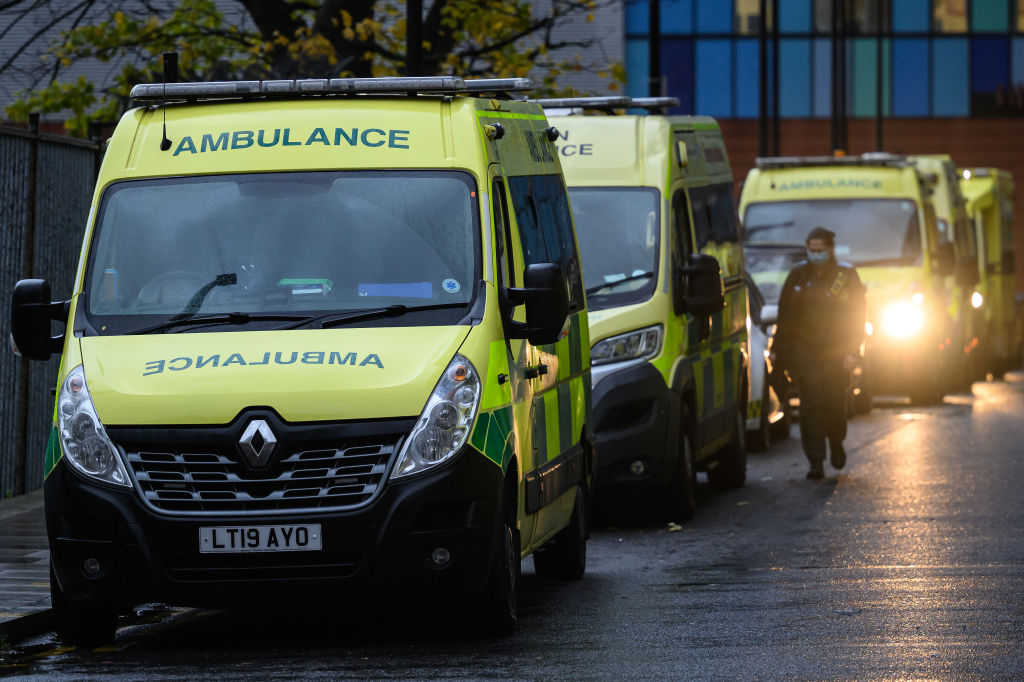Finally, good news on the strike front: NHS staff in Scotland have decided against walking out after voting to accept an improved pay offer from the Scottish government. The deal means healthcare workers will get pay rises ranging from £2,205 to £2,751. But this isn’t an offer to end all strike threats yet – nurses and physiotherapists are yet to decide whether they will halt strike action after the government’s latest offering.
For now, Nicola Sturgeon is hailing the announcement as a victory: the SNP’s health secretary Humza Yousaf – who has faced calls to resign as NHS waiting lists continue to grow – welcomed the decision by Unite and Unison to accept the ‘record pay offer’. More than 60 per cent of Unite the Union’s membership voted yes to an improved pay offer, and 57 per cent of the turnout voted to cancel industrial action, meaning that planned strikes that would affect the Scottish Ambulance Service, as well as the wider NHS Scotland, has been called off. Ambulance drivers in Scotland will not be striking this winter.
The deal shows that the Scottish government is ‘no longer [taking] NHS workers for granted’, said James O’Connell, Unite the Union’s lead negotiator for NHS Scotland. Health committee chair for Unison, Wilma Brown, echoed O’Connell’s remarks, saying her union’s vote was ‘not a win for the government – it is a warning’.
What does this mean? Well, workers’ worries haven’t just evaporated. It is worth bearing in mind that only just over half of union members voted in favour of this latest pay offer. There remain plenty of NHS staff who feel let down. Offers of better pay helps, of course, but there remains a staffing crisis in the health service that desperately requires attention. This lack of staff contributes to increased workloads and slower progression from the doors of A&E to discharge forms. This backlog, in turn, is linked to hospital bed blocking. All the issues facing the NHS are interlinked so deftly that solving one in isolation doesn’t make as much difference as one would expect.
On a brighter note, concerns that category 2 patients (those who suffer heart attacks and strokes) would face severe delays getting to hospital after phoning emergency services, on top of record level wait times in A&E, may be thankfully unfounded. The NHS is already facing an awful few months, given the cold weather and post-pandemic backlogs, and striking staff would undoubtedly add to its burden. Any win here is one to be celebrated. A leaked briefing shows that volunteers may even be drafted in by the government to help with the workload, and to cover for striking staff – as I wrote on recently.
But volunteers aren’t enough. Compromises have to be made. As the snow falls around us, it is all too clear that this winter is going to be a harsh one. Already hospitals are predicting another surge in patient numbers as the cost-of-living crisis collides with low temperatures and winter bugs. Properly-trained medical staff are required if we truly want to shift our patient backlog and deal with a winter intake. This means retaining the staff the health service already has, by working with them constructively as opposed to standing in a stalemate, but also recruiting more.
It’s good news, of course, that Scottish ambulance drivers won’t be walking out. But there is not much to celebrate: the strike ballot for the Royal College of Nurses closes on 19 December, and the vote for junior doctors to take industrial action will be held at the start of January. Meanwhile, in other parts of the country, the RMT has just rejected its latest pay offer: it means train staff will push forward with two 48-hour strikes this week.
So today’s news is a victory for NHS workers and for worried patients, but it is a small one. More frank discussion, on both sides, is necessary if we are to see any kind of functioning health service this Christmas.







Comments